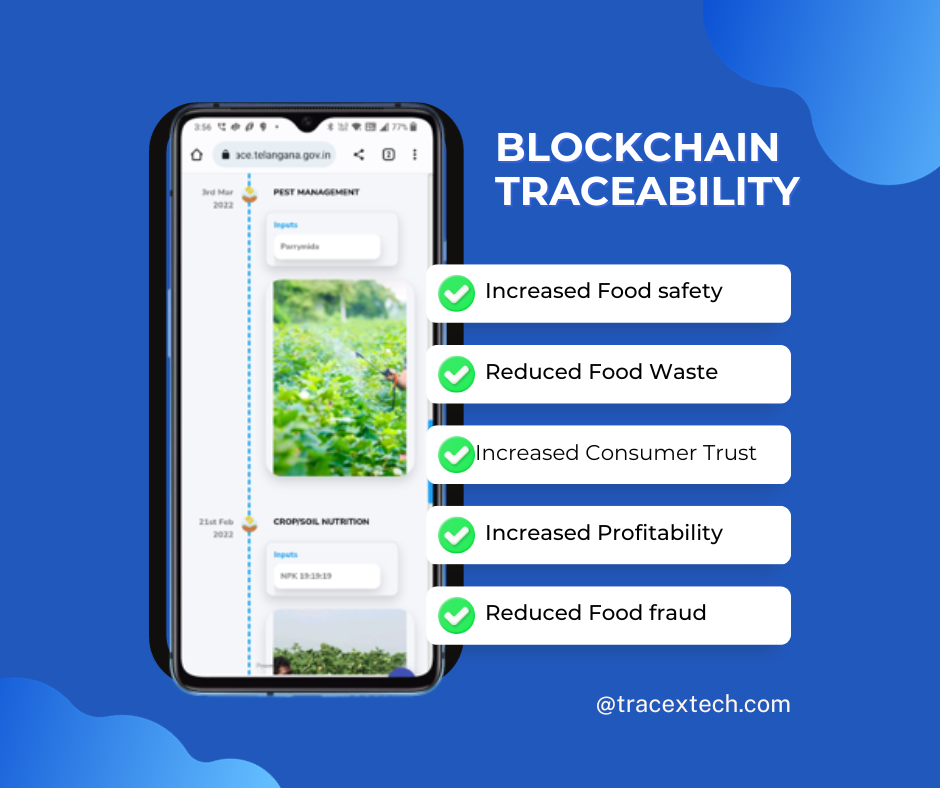Contact: +91 99725 24322 |
Menu
Menu
Quick summary: Discover the importance of product traceability in supply chains and how it ensures safety, compliance, and consumer trust. Learn why implementing robust traceability systems is essential for modern businesses.

Have you ever wondered what really happens to a product from the moment it leaves the factory until it reaches your doorstep? Consumers today are more conscious than ever about what they buy, the journey of a product matters immensely. Product traceability is a crucial aspect of supply chains that can make or break a brand’s reputation. You’ve just enjoyed a delicious salad, but then you hear about a lettuce recall due to contamination. Suddenly, that wholesome meal doesn’t seem so appealing anymore, right? This is a real pain point for consumers and businesses alike. Without effective traceability, companies struggle to identify the source of issues, leading to lost trust, regulatory fines, and potential health risks.
According to the Grocery Manufacturers Association, in the US, 52 % of food recalls cost more than $10 million, while 23 % of these recalls cost over $30 million.
In today’s marketplace, having a robust product traceability system isn’t just a nice-to-have; it’s a necessity. Whether you’re a small business owner or a supply chain manager at a large corporation, understanding the ins and outs of product traceability is essential to ensure safety, compliance, and customer satisfaction. Let’s dive into why product traceability matters and how it can transform your supply chain!
Key Takeaways
Product traceability is a critical aspect of supply chain traceability, allowing businesses to monitor and record the entire lifecycle of a product, from raw material sourcing to the final product reaching the consumer.
Product traceability refers to the ability to track and trace a product throughout its entire lifecycle, from raw materials to the final consumer. It involves documenting and monitoring every step of the supply chain, ensuring transparency and accountability. This comprehensive tracking enables businesses to monitor product quality, ensure compliance with regulations, and enhance safety by quickly identifying sources of contamination or defects. Effective product traceability not only improves operational efficiency but also fosters transparency and builds consumer trust, making it an essential component of modern supply chain management.
See How Green Earth Transformed Their Fresh Produce Supply Chain!
Green Earth adopted TraceX’s traceability solutions to boost food safety and quality in their fresh produce sector. By leveraging blockchain technology, they streamlined their supply chain processes, ensuring unmatched transparency and efficiency from farm to fork.
Implementing a robust product traceability system offers numerous advantages:
By tracking products throughout the supply chain, businesses can streamline operations and reduce waste. A well-organized traceability system enables companies to optimize inventory management and minimize overstock or stockouts.
Traceability helps identify quality issues at various stages of production. By analyzing traceability data, companies can pinpoint the sources of defects, leading to continuous improvement and higher product quality.
Consumers value transparency and want to know what they are buying. A transparent traceability system can enhance customer satisfaction by providing detailed information about products, including sourcing, production processes, and certifications.
Businesses that implement traceability systems can differentiate themselves in the market. Offering transparency and accountability can attract conscious consumers and foster brand loyalty.
Before diving into implementation, it’s essential to determine your objectives for product traceability. Consider the following questions:
Selecting the appropriate technology is crucial for effective traceability. Here are some common options:
Create a comprehensive traceability plan that outlines the processes, technology, and roles involved in tracking products. This plan should include:
Implementing a traceability system requires buy-in from all employees. Conduct training sessions to ensure everyone understands the importance of traceability and how to use the chosen technology effectively. Encourage a culture of accountability and transparency within your organization.
Collecting traceability data is just the beginning; monitoring and analyzing this data is crucial for ongoing improvement. Regularly review the data to identify patterns, address issues, and optimize your traceability processes. Consider implementing analytics tools that provide insights into supply chain performance.
Effective communication is essential for successful traceability. Share relevant information with suppliers, customers, and regulatory authorities. Transparency fosters trust and ensures all stakeholders are aligned with your traceability goals.
While implementing product traceability can bring substantial benefits, businesses may encounter challenges along the way. Here are common hurdles and strategies to overcome them:
Challenge 1: Managing large volumes of traceability data can be overwhelming.
Solution: Invest in advanced data management systems that can efficiently store, process, and analyze traceability data. Ensure that data is regularly updated and accessible to relevant stakeholders.
Challenge 2: Complex supply chains can make it difficult to track products accurately.
Solution: Simplify processes where possible. Work closely with suppliers to ensure they are also implementing traceability measures. Collaboration enhances visibility throughout the supply chain.
The rapid evolution of technology has ushered in a new era of advanced traceability solutions. Blockchain technology, with its decentralized and tamper-resistant nature, ensures an unalterable record of each transaction in the supply chain. The Internet of Things (IoT) allows for real-time monitoring of product conditions, and Artificial Intelligence (AI) enhances data analysis for more informed decision-making.

TraceX offers a versatile traceability platform designed to meet the needs of businesses across the food supply chain while ensuring compliance with regulations like the EU Deforestation Regulation (EUDR). This dual focus not only enhances food safety but also supports sustainable sourcing practices crucial for companies operating in the European market.
Explore our Food Traceability Platform
Explore our EUDR Compliance Platform
Product traceability is no longer optional; it’s essential for ensuring safety, compliance, and consumer trust. By implementing robust traceability systems, businesses can effectively manage risks, streamline operations, and respond swiftly to challenges such as recalls or contamination events. As consumers become more conscious of their purchasing decisions and regulators impose stricter requirements, investing in traceability not only safeguards your brand’s reputation but also fosters loyalty and transparency. In a world where knowledge is power, being able to trace a product’s journey from origin to consumer can be your greatest asset.
Product traceability refers to the ability to track and trace a product’s journey throughout the supply chain, from its origin to the end consumer. This includes information about sourcing, processing, transportation, and storage.
Product traceability is crucial for managing risks, ensuring compliance with regulations, enhancing food safety, and building consumer trust. It allows businesses to respond quickly to issues like recalls, thereby protecting their brand reputation.
Businesses can implement effective traceability systems by utilizing technologies like blockchain, IoT devices, and cloud-based software. These tools help gather, store, and analyze data throughout the supply chain, making it easier to track products accurately.
